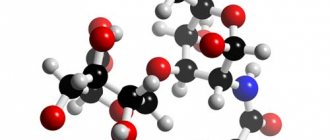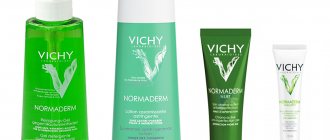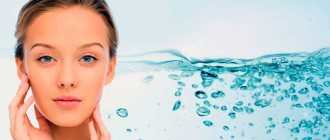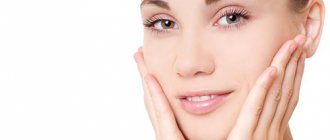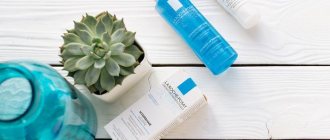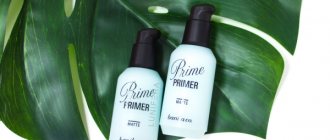The benefits of water for the human body
Liquid accounts for 60 to 80% of a person's body weight. Therefore, for full-fledged life, it is necessary to constantly replenish its reserves. Maintaining hydrobalance provides the following benefits for the body: • blood viscosity decreases, which facilitates the work of the heart and prevents thrombus formation; • digestive processes are normalized, since water is involved in the digestion of food and affects intestinal motility; • metabolic processes are supported, which helps remove decay products; • thermoregulation improves due to more efficient cooling of the body; • mobility is maintained because joint fluid dries out under conditions of dehydration. These are the most obvious manifestations of the benefits of water. It is also worth mentioning about providing cells with energy, maintaining healthy skin, and normalizing weight. However, to achieve these goals, you need to choose the right sources. Not only the fact of liquid intake is important, but also its chemical composition.
Humidify the air.
According to GOST, the norm of indoor air humidity is 30-45%. When the heating season starts, this level drops to 20%. You can determine that there is dry air in your apartment based on several signs. In homes with increased dryness, residents complain of nasal congestion and a sore throat, hangnails form on the skin of the face and hands, and cracked lips. But we have the power to overcome this critical level and bring it to normal levels. Many modern houses are equipped with sensors on radiators. This way you can adjust the temperature to suit yourself and your body. If this is not possible, you can add life-giving moisture in other ways.
For example, if you build a small greenhouse at home, a beautiful garden will not only please the eye, but also cleanse the space of harmful bacteria. The biggest fighters for clean air are chlorophytum, ficus, bamboo palm and azalea. An aquarium or waterfall can create a humidified microclimate and an atmosphere of complete relaxation.
Moisturized skin is the key to beauty and youth.
And, of course, universal advice is to buy an air purifier or washer. The device will rid the room of dust and allergens, and will also be useful for families with children, allergy sufferers and smokers - the device destroys cigarette smoke.
Types of drinking water
It is known that sea water is not suitable for drinking. It contains so much salt that the body tries to remove it as quickly as possible. In this case, urine is required one and a half times more. This only causes harm in the form of dehydration and impaired kidney function.
Therefore, we will focus on drinking types of water: • Artesian. It is mined from underground - at a depth of 40 to 200 meters. There is no need to boil it, but if the well is shallow, it is advisable to filter it. • Tap water. Meets minimum sanitary standards as it is pre-cleaned with chlorine or sodium hypochlorite. Requires boiling, and ideally, filtering. • Distilled. It is purified from all impurities in laboratory conditions. It loses not only its harmful but also its beneficial properties, so it is not recommended for use. • Spring. Purity is ensured by natural filtration. Safe for drinking if the source is not subject to anthropogenic pollution.
Bottled water sold in stores can be artesian, spring, or even tap water. However, it undergoes thorough cleaning, which makes it absolutely safe.
Everything about moisturizing the skin: does everyone need cream and why drink 2 liters of water
Moisturizer is the first thing a person buys when thinking about skin care. Did you know that the concept of “hydration” does not exist at all? Let's talk to experts about where water comes from in the skin and where it goes.
Our experts:
- Tiina Orasmäe-Meder is a co-author of the book “Beauty Myths,” a dermatocosmetologist, an expert in the development of cosmetics, and the founder of the professional cosmetics brand Meder Beauty Science.
- Klyuzko Elena Yurievna – candidate of medical sciences, cosmetologist, dermatovenerologist at the Remedy Lab clinic.
- Kristina Shlega is a dermatologist and cosmetologist at the Lazerjazz clinic.
- Yulia Shuvalova is a cosmetologist, dermatovenerologist at the Gen87 cosmetology clinic.
Why does skin need water? Maybe it's not needed at all?
Water in the skin performs the same functions as anywhere else in the body: it participates in chemical reactions, serves as a service for delivering beneficial substances to cells and promotes the removal of harmful ones, and helps the body adapt to the ambient temperature. It also promotes complete healing after any damage.
If we are talking about the aesthetic component, then water is responsible for the density and elasticity of the skin. Its deficiency provokes dull complexion, sagging, tightness, wrinkles and inflammation (due to lack of moisture, more sebum is produced).
Where does water come from in the skin?
The main thing to understand is that the main path of water in the skin is from the inside to the outside, and not vice versa. Water enters the inner layer (dermis) through blood vessels. Then from the dermis it penetrates into the outer layer (epidermis).
It is more difficult to introduce water through the skin than through blood vessels: the skin has an epidermal barrier, and this is a reliable barrier.
That is, there is no way to moisturize the skin from the outside at all?
Until recently, it was believed that yes, the penetration of water from the surface of the epidermis into the interior is impossible: the H20 molecules are too large. But recent research has shown that the epidermis is connected to the dermis by a network of nanochannels called aquaporins. They are nano-sized protein structures that open on the surface of the skin and a certain amount of water molecules penetrate into the dermal layer.
In 2003, Peter Agre received the Nobel Prize in Chemistry for his discovery of aquaporins. Interestingly, this study was not originally related to human skin, but looked at mammals and plants.
And yet, explain with your fingers: does water in the skin exist in the form of drops? Or in the form of molecules? Or maybe something else?
Basically, water molecules are in a bound form. That is, they are connected by hydrogen bonds to proteins or other molecules. But about 20% of water are free molecules. No one has yet been able to calculate the exact ratio due to the difficulty of measurements.
How is water distributed in the skin?
Most (up to 80% of the total) is found in the deep layers of the skin, where there are living cells. In the upper, horny layer, consisting of dead scales, there is much less water (from 15% to 30%).
Today, physiologists identify three main water pools that exist in the skin - static, dynamic and transdermal. They communicate with each other, and the deeper pool can supply water to the more superficial ones, but water from the “upper” pools cannot return to the deeper ones.
Static pool is the volume of water that is constantly present in the epidermis. In healthy young people, its amount can be up to 30% of the total volume of the epidermis. Hyaluronic acid and natural moisturizing factor (NMF) retain water between the cells of the stratum corneum, linking water molecules with amino acids, lactic acid, and urea. If this pool is full, the skin is smooth, even, and there are no fine wrinkles.
The dynamic pool is located deeper - this water reserve is at the level of the dermis. In the dermal layer, water is retained by a matrix consisting of glycosaminoglycans, the most important of which is hyaluronic acid. The dynamic pool is responsible for the firmness, density and elasticity of the skin.
Even lower is the transdermal pool - water contained in the microcirculatory network of the skin (capillaries of the dermis).
So my water is always with me? Or could she disappear?
Reaching the upper cells of the epidermis, the water evaporates. This is called transepidermal water loss. It also comes out with sweat and flows through the lymphatic vessels.
External influences - high and low temperatures, chemical or physical (UV radiation) factors - damage the protective layer of the skin and increase water loss.
In the dermal layer, hyaluronic acid is responsible for water retention. A decrease in its quantity leads to a decrease in moisture levels, which happens with age. There is also hyaluronic acid between the living cells of the epidermis, but in much smaller quantities.
What happens when you apply moisturizer to your skin?
It’s worth starting with the fact that in medicine there is no concept of “moisturizing” at all. This word was invented by marketers. As a rule, manufacturers use this term for three categories of products:
- Emollient (lipophilic) - fill the gaps between the scales in the stratum corneum and make the skin smooth to the touch.
- Occlusive (in English - Moisturizer) - create a film and prevent transdermal water loss.
- Actually, hydrophilic moisturizers (that is, not exactly moisturizers, but in Russian there is no suitable word, and in English they are called Humectant or Hydrator) - when they enter the epidermis, they attract moisture from the dermis and the environment.
What ingredients work?
- Soften: lipids, oils, fatty alcohols and fatty acids (stearic, linoleic, oleic and lauric).
- Create occlusion: mineral oil and its derivatives, lanolin.
- Attract moisture: glycerin (it has no equal here), hyaluronic acid, lactic acid, beta-glucan, propylene glycol, butylene glycol, panthenol, urea, sorbitol, AHA acids.
But that's not enough for deep hydration, right?
Right. As we wrote above, the main path of water in the skin is from bottom to top, and not vice versa.
To ensure that all layers of the skin are saturated with water, you need to:
- Maintain hydration of the transdermal water pool , that is, the water contained in the capillaries of the dermis, namely:
- Drink 1.5-2 liters of water (check with your doctor, this is good for the skin, but not always good for the body).
- Monitor the condition of the excretory system: if something is wrong with the gastrointestinal tract or kidneys, then the water balance of the whole body, including the skin, is disturbed.
- Use products with vascular-strengthening ingredients - if the vessels are damaged, water does not have enough pathways to enter the dermis. Such ingredients include niacinamide, caffeine, escin, rutin, centella and horse chestnut extracts. These substances penetrate the dermis due to their small molecule size. Have you noticed that after using a serum with, for example, niacinamide, the skin turns red? This ingredient has reached the capillaries.
2. “Moisturize” the stratum corneum using the ingredients we talked about above. Despite the fact that it consists of keratinized cells, water is needed for their adhesion. If there is not enough water, water will be drawn out of the dermis.
3. Maintain a healthy lipid barrier . In addition to lipids and fatty acids, antioxidants contribute to this: ferulic, ascorbic acids, vitamin E, resveratrol. They protect their own lipids, preventing their oxidation in the sun.
4. Stimulate the synthesis of aquaporins, which promote the transport of water from top to bottom. Their number decreases with excess solar radiation, the use of certain acids, and simply with age. Stimulation of aquaporin synthesis is a promising and insufficiently studied branch in dermatology. Such ingredients are supposedly considered to be plant extracts of pomegranate, algae, and apple.
5. Don’t be nervous (how many times have you heard this?:). When stressed, the hormone cortisol is produced, which reduces the production of your own hyaluronic acid.
So, wait! But what about the popular injections of drugs based on hyaluronic acid?
Doctors' opinions differ here (so wait for a separate guide).
Elena Klyuzko: “If moisture is lost at the level of the deep layers of the skin, cosmetics cannot have a significant effect on the dermal layer. This means that deeper methods of influence are needed - mesotherapy or biorevitalization with the injection of hyaluronic acid.”
Tiina Orasmäe-Meder: “Such injections make sense only when the amount of hyaluronic acid in the body as a whole decreases - as a result of disease or age-related changes. (This can be tracked: for example, your joints will begin to creak, your vision will deteriorate.) As a rule, this occurs at +/- 60 years, and in women it often coincides with menopause.
But sometimes the synthesis of hyaluronic acid can be temporarily reduced: for example, if you don’t get enough sleep for several days. In this case, everything will recover on its own, and injections will only confuse the body: “Wait, should I synthesize hyaluronic acid myself or not?”
Does everyone need to moisturize their skin? Maybe I don't need it?
There are practically no medical indications for moisturizing the skin. Exceptions are the rarest manifestations of extreme dryness of the skin, which causes cracks.
But the level of hydration certainly affects the visual appearance of the skin.
A hypothetical healthy person with a healthy body and, accordingly, healthy skin, living in a hypothetical ideal climate and not faced with aggressive environmental factors can do without additional moisturizing.
Another question is how many people like this do you know?
A real person in the modern world still needs additional hydration. At a minimum, because his skin is exposed to the sun and hard water every day. And then there is the so-so environmental situation, stress, and poor nutrition. All this negatively affects the level of moisture.
At some times, such as holidays in humid climates, normal skin will actually feel great without additional moisturizer. But this is rather an exception.
Am I confused and don’t want to get into it at all? What should I apply specifically?
Kristina Shlega : For the average person without any particular problems, a combination of two or three products works best. For example, a moisturizing toner and/or a moisturizing serum with antioxidants and a “closing” cream that prevents moisture evaporation and restores the lipid barrier.
They say that if you constantly use moisturizer, the skin gets used to it and stops moisturizing itself?
No. The skin can get used to antibiotics and hormones, but these substances are usually not included in moisturizers. If you regularly use moisturizing care, then after some time you notice the most pronounced effect, and then it seems to you that the improvement is slowing down. But this does not mean that the skin is “accustomed”, it is just that it is in the best possible condition.
But if you cancel moisturizers, moisture from the deep layers of the skin will begin to rise to the surface - to enhance the hydration of the epidermis. This can lead to more severe skin dehydration and, as a result, faster formation of wrinkles and earlier breakdown of the skin barrier function. Therefore, it is better to use the funds than not to do so.
Our experts:
Tiina Orasmäe-Meder
Co-author of the book “Beauty Myths”, dermatocosmetologist, expert in the development of cosmetics, founder of the professional cosmetics brand Meder Beauty Science.
Klyuzko Elena Yurievna
Candidate of Medical Sciences, cosmetologist, dermatovenerologist at the Remedy Lab clinic.
Kristina Shlega
Dermatologist, cosmetologist at the Lazerjazz clinic.
Yulia Shuvalova
Cosmetologist, dermatovenerologist at the Gen87 cosmetology clinic.
Why can't you drink tap water?
In the USSR, they didn’t even think about boiling water and calmly quenched their thirst straight from the tap. But since then, the environment has become dirtier, and the water supply networks have worn out and become rusty from the inside. The incoming liquid can no longer be consumed without pre-treatment.
To understand the reasons, let's look at the composition of tap water: • chlorine - used for disinfection; • aluminum salts - neutralize impurities; • copper and iron - deposited on pipes; • calcium and magnesium salts - come from the source and are not eliminated during the filtration process; • residual tripolyphosphates - they are used to treat pipes to prevent corrosion.
In closed systems, sulfur bacteria actively multiply. When they get into the water, they give it an unpleasant odor. Boiling is used to destroy them, but this process is not harmful to chemicals.
Take a shower instead of a bath.
If you are a fan of hot baths, then know that high temperatures are not good for your skin and heart health. Hot water dries the epidermis and strips it of its protective fat layer. During the heating season, it is more beneficial to take a shower, but the water temperature should not exceed 36-37° C. During cold weather, replace regular soap with a moisturizing soap that contains cream. But, alas, even the most delicate cream soap will not be enough. After water procedures, apply body milk, grape seed or olive oil.
For winter, stock up on aromatic cream soap.
Contrast washes and cryotherapy will be useful for your facial skin. A simple ice cube in the morning will revitalize your skin and help you look fresh.
How does boiling affect water quality?
On the one hand, this process destroys pathogenic microorganisms that managed to pass through communal filters. Boiling also partially clears the liquid of the chlorine used to disinfect it. On the other hand, the benefit is offset by the evaporation of oxygen. High temperature destroys the structure of the H2O molecule, as a result of which it loses its life-giving properties. No matter how well tap water is boiled, chlorine cannot be completely removed from it. Its residues precipitate, react with organic compounds and form trihalomethanes, which are hazardous to health. If cadmium, mercury, or nitrates are present in the liquid, they cannot be removed even by heat treatment. Therefore, it cannot be said that a kettle makes tap water absolutely safe. Knowing this, many people refuse it and switch to bottled.
Drink filtered water
A glass of water drunk on an empty stomach has the maximum benefit. Having lost moisture during sleep, the body needs to restore it. Drinking water on an empty stomach is one of the best habits. It’s good to take care of a portion of your morning liquid in advance and throw a slice of lemon and lime into the glass. Drinking this vitamin infusion on an empty stomach will charge you with energy for the whole day!
Just don't forget about purifying the water. The dangers of tap water leave no room for doubt. Boiled water, which many of us are accustomed to drinking, is also not suitable for healing. It’s not called “dead” for nothing. Of course, it will not cause serious harm, but such water is devoid of nutrients and oxygen, which means the effect of its use will be minimal.
Boiled water can be used in one case, if, apart from raw water of questionable quality, there are no other sources of liquid nearby. In all other cases, preference should be given to filtered water, since the variety of household filters allows this to be done quickly and without special financial costs.
The material was prepared by the doctor of the ultrasound department “Grodno University Clinic” Kaskevich Yu.Yu.
What is mineralization?
Salinity (salinity) means the presence of dissolved substances. Pure H2O cannot be found in nature. Depending on the source of water, chlorides, sulfates, bicarbonates of calcium, magnesium, sodium, iron or potassium may predominate in it. These substances in moderate quantities are beneficial - it’s not for nothing that mineral water is drunk for therapeutic purposes.
However, the salt concentration is important here: • 1 gram per 1 liter of liquid is the optimal concentration for daily consumption. This mineral water is called a canteen and is suitable for everyone, regardless of health status. • Up to 10 grams per 1 liter of liquid - recommended for the prevention of leaching of salts and diseases provoked by this process. The product is called a medicinal table - it can be drunk in small courses. • More than 10 grams per 1 liter of liquid - used only for medical purposes. This mineral water is considered medicinal and is used as prescribed by a doctor.
It is better to consult your doctor regarding the composition. If you have certain diseases, there is a risk of harming yourself by increasing the consumption of certain salts.
To drink or not to drink
Everyone is familiar with the statement that for health you need to consume a certain amount of clean water per day. In different versions, the required volume ranges from 1.5 to 2.5 liters. Now this advice is causing great controversy in popular and scientific circles, and scientists from the UK even conducted an independent experiment. For 2 months, two groups of subjects drank 1500 ml of water: the first - plain water, the second - mineral water. The result showed an improvement in skin condition by 19 and 23%, respectively, but further research did not give even half the result, so water, as an absolute panacea for the skin, lost its position.
The secret of the positive effect of daily consumption of a certain volume of water can be explained by the fact that it will displace habitual drinks (coffee, sweet soda) that are more harmful to health from the diet. Forcing yourself to drink any specified amount is unwise. In case of a number of kidney diseases, drinking too much can cause deterioration in health.
An adequate solution, as a rule, lies between opposing opinions. The first says that you must drink at least 2 liters of water, and the second is to be guided by the individual sensations of your body, which will tell you when and how much to drink.
You need to quench your thirst with water at room temperature. Our body does not know how to absorb icy liquid from the refrigerator and will spend time and energy on warming it, so thirst quenching will not come immediately
Adherents of the middle theory are against mandatory liters of water. At the same time, they do not advise waiting until you feel a clear feeling of thirst to drink, which indicates that the process of dehydration has already begun. The daily rhythm of life contributes to ignoring the needs of the body. In the bustle of work, sensations become dull, and there is no time to analyze internal signals.
To provide the required portion of water, there is a special formula - a person’s weight multiplied by 30. For example, 65x30 = 1950. This means you need to drink a little less than 2 liters of liquid per day. This volume does not include other drinks. Juice, kefir or yogurt have calorie content, which means they are considered complete foods.
It is optimal to consume about 200 ml of water at a neutral temperature at a time. You need to drink it in small sips, and not in one gulp, half an hour before or an hour after a meal. Drinking water immediately after eating will dilute the concentration of gastric juice and lead to disruption of the digestive process. In hot weather or during sports, you need to replenish your water supply without waiting until your mouth becomes dry and your eyes darken.
How does poor quality water affect health?
The chemical composition of the water consumed affects the functioning of the body. This does not appear immediately - there are no acute poisonings here. Organizations involved in water supply and sanitation in cities follow strict sanitary requirements. Therefore, tap water cannot definitely be called dirty.
However, harmful substances, for example, chlorine, accumulate in the body for years, which leads to undesirable consequences: • dysbacteriosis; • anemia; • atherosclerosis; • hypertension; • asthma; • pathologies of fetal development (if we are talking about a pregnant woman).
The main harm of chlorine to the body is its carcinogenicity. In regions where water is purified with it, rather than with more modern ultraviolet light, the prevalence of stomach and bladder cancer is higher. Parts of the body through which chlorinated liquid passes are also at risk: the larynx, esophagus, intestines, kidneys.
Use a spray.
You've probably heard about sprays that save your skin in the heat and give you freshness. They can also be used in winter. A high-quality spray can replace tonics and lotions. The product gets onto the skin by spraying and dispensing nozzle. It needs to be sprayed 3-4 times a day, and the remaining drops on the face must be blotted with a napkin. Women with severely dehydrated skin should look for chamomile and aloe vera extracts, phospholipids, and lecithin in the product. Sprays have a rich composition and a multi-level effect. They are able to make makeup last longer, remove swelling and signs of fatigue from the face, and give the skin a matte appearance and an attractive shine.
Facial spray instantly washes away signs of fatigue
If you don't like industrial products, you can make a spray yourself. Green tea, rose petals, cucumber juice, lavender and orange oils work best for this purpose.
Simple washings with mineral water are no less useful - they will save sensitive and dry facial skin.
How does mineral water affect a person?
Depending on the salt composition, different types of mineral water are distinguished. Accordingly, its healing properties differ: • Hydrocarbonate. Increases alkalinity, prevents the accumulation of lactic acid in muscles, improves kidney function. Not recommended for gastritis. • Sulfate. It is good to drink for stagnation of bile and liver diseases. However, it leaches calcium from bones, so it is contraindicated in children, adolescents and postmenopausal women. • Chloride. Stimulates digestion, gives a choleretic effect. It may increase blood pressure, so it is prescribed with caution to hypertensive patients.
Mixed types are more common, for example, hydrocarbonate-sulfate, chloride-sulfate, calcium-sodium. Therefore, before taking it, it is important to compare the indications and contraindications. It is necessary to remember the dangers of not only deficiency, but also excess of minerals.
Go for rich textures.
Cosmetics for winter and autumn should be thicker and contain vegetable oils. Your beauty diet should have a place for serums, nourishing masks and the favorite leave-in products. From oils, choose those that moisturize well - grape seed, jojoba, coconut, rosehip, which it is advisable to mix with vitamins A, C and E. You can buy the latter at the pharmacy in capsules or oil solution and add them to your product. If in the summer we often used gels and peels, now we need more gentle care. It is better to avoid aggressive cleansing and not to use products with particles that injure the skin. Instead, there are soft foams and gommages that will create a protective barrier on the skin and retain moisture. Creams with retinoids, hyaluronic acid, lecithin, urea, vitamins E, C and B6 will be advantageous.
In winter, the skin is most susceptible to irritation. Products containing sea buckthorn, aloe vera, and calendula extracts will help prevent wounds and peeling.
Tip: Don’t neglect the skin of your hands - they suffer not only from temperature changes, but also from the effects of household chemicals. It is useful to apply cream with badger and bear fat and beeswax on them.
Winter face cream should be thick and dense
How to use thermal water for face and body?
It is believed that thermal water can be simply sprayed on the face to provide the skin with freshness and comfort. But this is not the only possible way to use the product. Also, by spraying a mineralizing composition with a high salt content, you risk causing tightness and dryness of the epidermis. To avoid this, use the advice of experts.
How to use thermal water correctly:
- Spray water onto cleansed skin, and after 2-3 minutes, gently wipe the skin with a clean paper towel to remove excess product.
- If you apply a basic moisturizer on top of thermal water, it will “seal” the microelements and significantly enhance their effect.
- Additionally, spraying thermal water after washing and subsequent application of toner will help to moisturize the skin (relevant for dry skin). In this case, the mineralizing composition will serve as a conductor and amplifier of the active components in the basic caring cosmetics (cream, serum), which should be applied next.
- If you use thermal water during sports training (spray at a distance of 50 cm from the face and décolleté), the skin will maintain its tone, which will give you a feeling of comfort (instant skin refreshment).
- Thermal water can also be used instead of toner on pre-cleansed skin.
- Cotton pads soaked in a mineralizing composition will help relieve eye fatigue: place the pads moistened with water on closed eyelids for 5-7 minutes.
- An application of a cosmetic napkin soaked in water will help relieve skin inflammation: apply this mask to your face for 10-20 minutes.
- In summer, use thermal water to hydrate and refresh your skin. In winter, being in a heated room, the product will also protect the skin from dehydration and tightness.
Don't forget about moisturizing masks.
Nourishing masks will help prevent dryness and sagging of your skin. This is also a quick and inexpensive way to achieve a healthy and glowing dermis. For deep hydration, a variety of ingredients are used - honey, sour cream, olive oil, banana and persimmon, oatmeal. Pamper your skin with oil-herbal compresses. To do this, make a herbal mix of linden, mint, chamomile and sage. The healthy mixture must be poured with boiling water and left for at least 30-40 minutes. When the herbal infusion is ready, you need to pour a few drops of moisturizing oils into it - peach, sesame or jojoba. Now you need to soak the gauze in an oil-herbal solution and apply a compress to your face. Your skin will be delighted with such a gift!
We are waiting for you at
Every day from 10 to 21 ⠀ Mira Street 15k1 You can make an appointment by phone: ⠀ 8 ⠀ 8(999) 035-90-11
Dry skin – what are the reasons?
Dermatologists estimate that about 20% of the population has dry skin, meaning there is not enough water in the skin of these people.
This leads to the following symptoms:
- Dry skin cracks and becomes wrinkled.
- It is dry and less elastic.
- People with dry skin often experience burning and itching sensations.
Dry skin does not provide sufficient protection from external factors. It provides less protection from UV radiation, wind, temperature changes and chemical factors, such as exposure to aggressive detergents. Dry skin is also a weak barrier to bacteria and viruses.
Dry skin
Physiologically dry skin is a classic symptom of severe dermatological diseases - psoriasis or atopic dermatitis. Other causes of dry skin:
- dehydration;
- genetic predisposition (to a lesser extent);
- poor diet - vitamin A deficiency;
- various irritants, for example, some ointments, cosmetics, chemicals;
- climate, environment, for example, UV radiation, low temperature, air conditioning in summer and heating of apartments in winter;
- too frequent and long baths;
- using excessive amounts of cleansers.
The skin has a protective layer in the form of a hydrolipid layer that protects against evaporation, and too long baths using chemicals lead to washing off this layer.
Vacation is a time that promotes drying of the skin. The reason is the exceptional accumulation of unfavorable factors: the influence of air conditioning, UV radiation, dehydration, swimming in the sea and pool - salty or chlorinated water very easily washes off the hydrolipid layer.
How else can you help your skin retain moisture?
We must not forget about drinking water: the more, the better. In practice, the minimum volume of fluid required depends on many factors, including age, climate, and metabolism. Children and people who undertake increased physical activity should drink more water. It is best to drink plain still water.
It should also be remembered that with age, the skin becomes drier, has less hyaluronic acid and weaker compensation mechanisms. As a person gets older, he feels less thirsty, so he does not always understand that the body is suffering from a lack of moisture.

